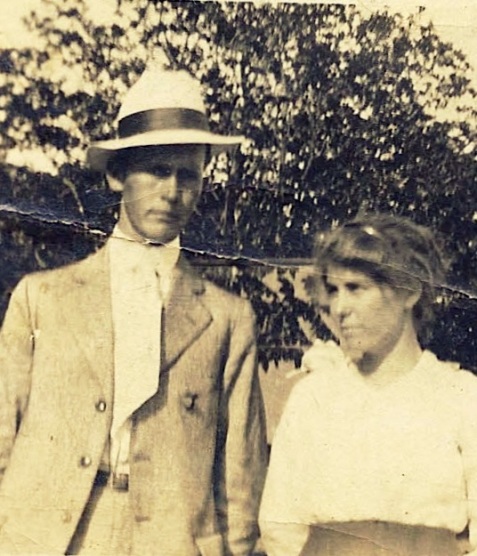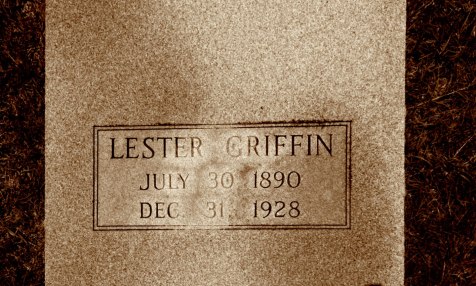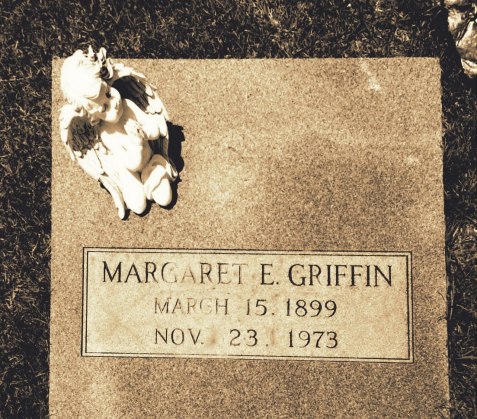Hamilton W. Sharpe
Hamilton W. Sharpe was a pioneer settler of Lowndes County and a contemporary of Levi J. Knight, who settled at the site of Ray City. The two fought together in July, 1836 actions against Indians which occurred in this immediate area including the Battle of Brushy Creek and actions on Warrior Creek in what was then Lowndes County (now Berrien and Cook counties,) Georgia.
Sharpe first came to Lowndes via the Coffee Road:
As has been discussed, one of the first roads of any kind to be constructed through south Georgia was the Coffee Road, built by General John Coffee in 1823. It was a “road” only in the sense that it was a path cleared through the forest with tree stumps cut low enough for wagon axles to clear them.
One of General Coffee’s overseers in the laying out of the road was Enoch Hall, a son of Sion Hall and Mrs. Bridget “Beady” Hall. The Halls were among the very first settlers in the area of Irwin County that became Lowndes county by an act of the Georgia Legislature, December 23, 1825. At July , 1824 term of the Irwin County Inferior Court July term, 1824, Sion Hall, James Allen, and Thomas Townsend were appointed to lay out a road from Ocmulgee River to Alapaha River.
Sion Hall established a tavern on the Coffee Road, about two miles north of present day town of Morven,GA and his brother, John Hall, operated a liquor bar there.
In 1826, Hamilton W. Sharpe, then a young man hardly in his twenties, came down from Tatnall County over the Coffee Road, and decided to locate near the home and traveler’s inn of Sion Hall. It was at Hall’s Inn that the first court in Lowndes County was held a few months afterwards. Sharpe along with others expected that the permanent county-seat would be established there. So young Sharpe built a small store building out of logs near the Sharpe home. Thus, Hall’s Inn and Sharpe’s Store were situated approximately 25 miles southwest of present day Ray City, GA, the site first settled by the Knight family in the winter of 1826.
In 1828, Hamilton W. Sharpe obtained the establishment of a U. S. Post Office at his store, for which he was appointed Postmaster. The Sharpe’s Store Post Office served Wiregrass Pioneers for almost 25 years.

Post marked Sharpe’s Store, Geo., September 29, 1849.
The Sharpe’s Store Post Office in Lowndes County (now Brooks County) opened from 1828 to 1853 (In 1836 it was briefly known as Magnum Post Office). This letter written by Douglas Graham, was addressed to his cousin, Jno A Brooks Esq, PM in Rockford, Alabama. It was originally rated Free but rerated to 10 cents due. The contents of the letter mention that Graham is interested in information about his ancestors and says he will write a long letter containing what he knows. Graham comments on the “Whig Rascals” in Alabama, and on the politics of Georgia. Of the men running for Governor he wrote: “Judge [Edward] Hill probably drinks no more liquor than Towns though he has been called a horrid drunkard.” (George W. Towns won by aggressively endorsing “southern rights” and playing to fears about Congressional interference with slavery.)
In December of 1846, Hamilton Sharpe responded to a letter to the editor published in the
Savannah Daily Republican, written by a subscriber from Okapilco, Lowndes County, GA. Okapilco was on the mail route from Franklinville via Sharpe’s Store to Bainbridge, GA. Without naming names, this subscriber appeared to be complaining about the way Postmaster Sharpe charged postage due on the mail, the selection of mail routes, the infrequency and irregularity of the mail service, even the quality of the conveyance by which the mail was delivered. To these criticisms Hamilton Sharpe took great offense, and his written, point-by-point response was in turn published in the
Republican, transcript below.

Sharpe’s Store, December 28, 1846
Sharpe’s Store, Dec. 28, 1846.
Messrs. Editors. – My attention has been called by a friend, to a letter in the Republican of the 9th inst., from a correspondent of yours, writing from “Okapilco, Lowndes Co., Ga.,” over the signature of a “Subscriber.”
I notice the letter, first; because therein is an evident intention to censure some Post Master in this vicinity and secondly, because the writer has made statements which are not facts. The writer says, “we are now, (a recent thing,) charged ten cents on single letters from your city, and though these letters are originally stamped five vents, by the Post-Master at Savannah, &c., yet on their arrival in this county, an additional five cents is placed over the original by some little powers that be, &c.” Now if your “Subscriber” intends this as a charge against this office, I flatly deny the fact, and will appeal to the way-bills from Savannah, and the Post-Master at that place to sustain me. If a letter is received from Savannah at this office, charged with five cents only, I feel myself bound, in the discharge of my official duty, to mark the letter “under charged,” and add an additional five cents, which I may have done, but as to “placing an additional five cents over the original,” it is not allowed by this “little power that be.”
Again, he says “there are two routes from Savannah, one via Darien not over two hundred miles.” He must be very ignorant of the rout over which the mail travels “via Darien,” or he would not risk his love of truth in such a glaring assertion. It had not even been a doubt in my mind whether it is not more than three hundred miles from this to Savannah even by the route via Darien; but as I had no means of ascertaining the precise distance, I was disposed, if I erred at all, to err on the side of the public, and consequently charged five cents on all letters not exceeding half an ounce in weight, until by general consent (“Subscriber” exempted, I suppose,) the mail was changed on the other route, which every body knows to be four hundred miles and upwards.
In 1845, I corresponded with Mr. Schley, the Post-Master, in Savannah, on this subject – a gentleman whom I have ever considered as worthy of the confidence of the public – and I am persuaded that he has said in good faith in discharge of his duty, and will not deny but what his way-bills, are invariably, since the change was made in the rout, charged ten cents on all letters from his office to this.
This gentleman, the “Subscriber” from “Okapilco,” whoever he is, seems to be very censorious. He wants the mail oftener, &c., and who does not? But how are we to get it, by writing to you a letter of censure and compalints, embellished with a few of his little “cat’s paw” flourishes of wit, implicating the conduct of Post-Masters, in the discharge of their official duty? If this is the way we are to get a change in our mail arrangements, it will present a new aspect to matters and things in the Post Office Department, and besides he will not get many to follow in his walks. But let him go to work at the right place, instead of censuring the “little powers that be” – let him supplicate the law-making power, and his course will be considered by all to be more open and generous at least, and no doubt he will gain the co-operation and influence of the community at large.
Why arraign the Post-Master General in this matter – we have as many mails now as we had under former Administrations, and get them as regular, and there is as few complaints, and as few causes of complaints. Perhaps “Subscriber” wants a mail route established for his own especial benefit, twice or thrice a week, and then he would be “blest by the light spreading influence emanating from Cave Johnson’s Express,” sure enough.
What does “Subscriber” means by the “news carrying quadruped” – is it the contractor, the old sulky, the old gray horse that draws the sulky, or little Barney who rides and drives? I am sure little Barney is a faithful little soul to his business, and as often as the old gray has failed, he has as often obtained a substitute – and where is the cause for this notorious letter from “Subscriber.”
I am at a loss, Messrs. Editors, to know which looks the worst to a man “up a tree,” “little men in big places,” or big men in little places. If “Subscriber” is acquainted with “Euclyd,” perhaps he may solve the question himself. Does “Subscriber” know what the new Post Office law is, with regard to this matter? If he does not, he had better inform himself on the subject. It is found on the first page of the new “Post Office Laws and Regulations,” beginning with the first clause, and if he cannot understand its mystifications, let him employ a lawyer.
I will now take leave of your “Subscriber from Okapilco, Lowndes Co., Ga.,” who, it seems, would seek some notoriety at other men’s expense, but who is very careful to conceal his real name.
HAMILTON W. SHARPE.
Related Posts:















